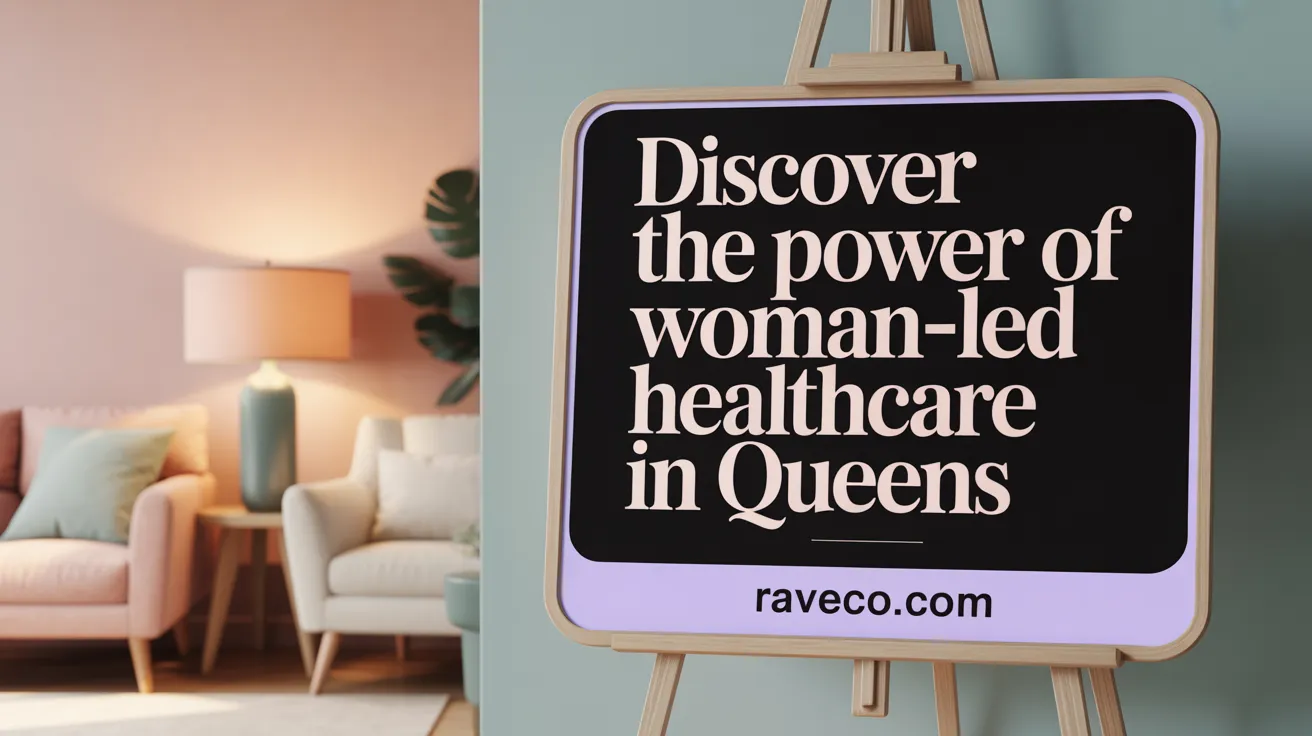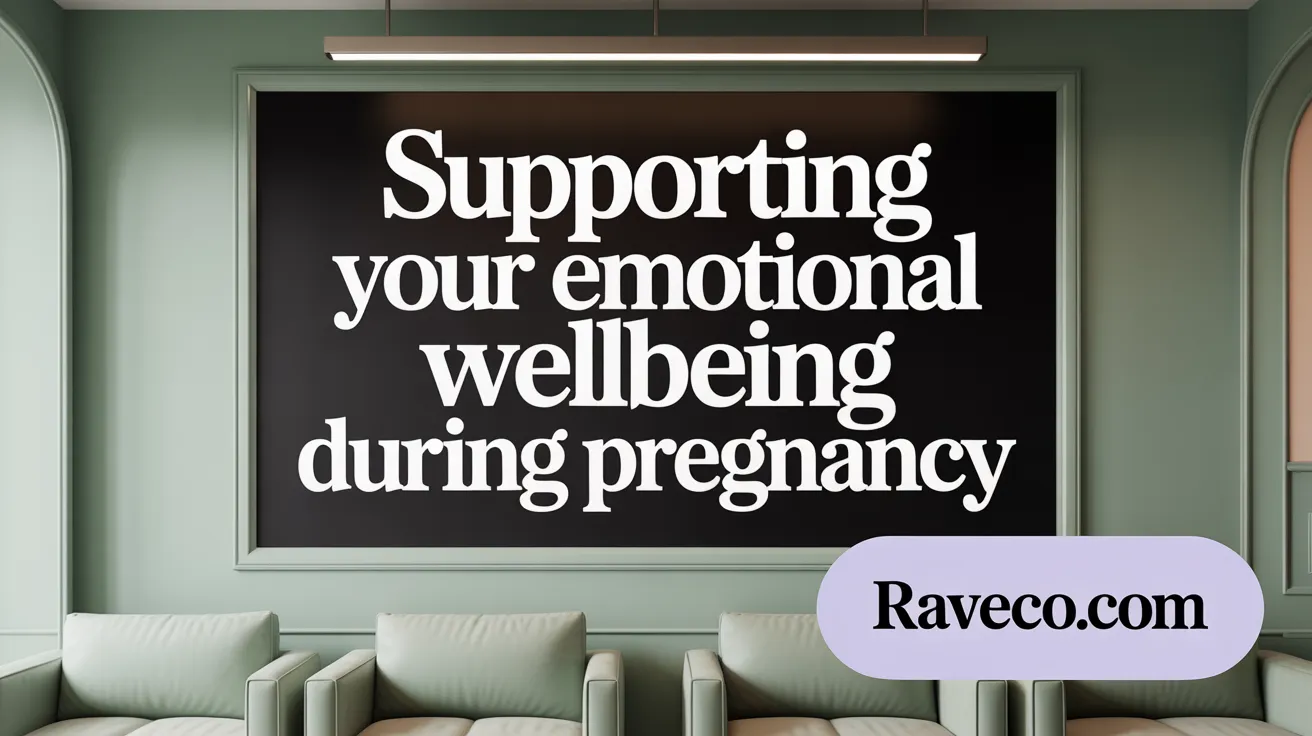Empowering Choices: The Essentials of Birth Control Counseling

The Importance of Holistic Support During Pregnancy
Overview of Holistic Pregnancy Support
Holistic pregnancy support integrates medical care with wellness practices that address nutrition, physical activity, and emotional health. This comprehensive approach moves beyond standard prenatal visits, focusing on personalized nutritional planning, safe exercise routines, and mental well-being strategies to optimize both maternal and fetal outcomes.
Interconnection of Nutrition, Exercise, and Mental Health
Adequate nutrition during pregnancy, including increased caloric and micronutrient intake, supports fetal growth and decreases risks like anemia and low birth weight. Coupled with this, regular, moderate exercise, such as walking, swimming, or prenatal yoga, enhances cardiovascular fitness, reduces risks of gestational diabetes, and alleviates common pregnancy discomforts.
Mental health is equally crucial; emotional support, stress management through mindfulness, and early detection of anxiety or depression profoundly affect maternal well-being and pregnancy outcomes. These elements are interconnected, as proper diet and physical activity contribute to better mood and reduced prenatal stress.
Relevance for Queens, NY Women
In Queens, NY, women have access to robust holistic prenatal care through facilities like Long Island Jewish Forest Hills and NewYork-Presbyterian Queens, offering integrated obstetric and wellness services. Tailored exercise programs, culturally sensitive nutritional guidance, and mental health support are accessible to meet diverse community needs, enhancing pregnancy experiences and outcomes locally.
Personalized Care in Obstetrics and Gynecology: A Woman-Led Approach

What services are offered by a woman-led healthcare provider specializing in obstetrics and gynecology?
A woman-led obstetrics and gynecology practice in Queens, NY, provides a comprehensive range of services designed to meet women's diverse health needs throughout their lives. These services include routine gynecologic exams, prenatal and high-risk pregnancy care, and advanced diagnostic procedures such as colposcopy and sonography. They offer minimally invasive surgeries like laparoscopy and hysteroscopy to treat conditions such as endometriosis and uterine abnormalities. Management of pregnancy-related complications, including diabetes and hypertension, is tailored carefully with support from leading hospitals featuring neonatal intensive care units. Additionally, treatments extend to wellness consultations, cosmetic gynecology, breast and cervical cancer screenings, and postpartum care. This holistic service array ensures women in Queens receive advanced, personalized, and compassionate healthcare close to home.
How does a woman-led healthcare provider enhance personalized care in obstetrics and gynecology?
Woman-led providers bring nuanced understanding and empathy to the care they give, often derived from both professional expertise and lived experience. This intimate perspective fosters stronger patient-provider relationships built on trust and open communication. Care is customized to each woman's medical needs as well as her cultural background and personal preferences. Providers are trained to sensitively address complex issues such as postpartum depression, urinary incontinence, and sexually transmitted infections. By emphasizing patient education and involvement, these providers empower women to actively participate in their health decisions, promoting better outcomes and long-term well-being. Their approach aligns with principles of holistic prenatal care that integrate medical treatment and wellness, nutrition, exercise, and emotional health.
What is the role of cultural sensitivity and community collaboration in Queens?
Queens is one of the most culturally diverse regions in the U.S., and woman-led OB/GYN practices here actively integrate cultural competence into their care models. This includes providing interpreter services, respecting dietary restrictions such as Kosher and Halal accommodations, and understanding culturally specific health beliefs. Collaboration with community health centers and local hospitals ensures access to resources for patients from all backgrounds. Educational programs and support groups often reflect the community's needs, enhancing emotional support during pregnancy and health literacy. Such culturally sensitive, community-focused care is vital to improving maternal and women's health outcomes in this vibrant borough.
The Role of Personalized Care in Women's Health

Why is personalized care important in women's health services?
Personalized care is essential in women's health as it acknowledges the distinct biological, emotional, and psychological characteristics unique to each woman. This tailored approach ensures that treatments and health support are more effective, leading to improved outcomes and greater patient satisfaction.
Advancements in clinical research, such as those promoted by Northwell Health’s Katz Institute, emphasize the need to develop gender-specific healthcare strategies. Historically, much medical research was male-centered, which often overlooked important sex-based differences. Personalized care bridges this gap by incorporating women's unique physiology and lived experiences into healthcare delivery.
Specialized programs addressing women's mental health, menopause, and postpartum wellbeing underscore the benefits of personalized healthcare. These programs adapt to individual needs, providing targeted support that improves emotional health and quality of life during critical stages. Increasing the presence of women in healthcare leadership roles also ensures that care is delivered from a more representative and empathetic perspective.
In summary, personalized care results in more compassionate, comprehensive, and effective health services that respond to the diverse needs of women at various life stages.
Nutrition Recommendations for a Healthy Pregnancy
Caloric and nutrient needs during pregnancy
Pregnancy requires an increase in caloric intake, approximately 300 extra kcal per day, especially in the second and third trimesters. Protein intake should rise to about 60 grams daily, while carbohydrates should make up 45-64% of total calories. Micronutrient demands also increase to support maternal and fetal health. For detailed information, see Nutritional needs during pregnancy.
Role of folic acid, iron, calcium, and vitamins
Folic acid is critical before conception and during pregnancy to reduce the risk of neural tube defects; a daily supplement of 400-800μg is recommended. Iron needs nearly double, with a usual prenatal vitamin providing 27 mg; vitamin C improves absorption. Calcium supports bone development, and vitamins A, D, and others help prevent complications like anemia and preeclampsia. Vitamin A intake should not exceed 10,000 IU per day due to teratogenic risks. Refer to Micronutrient RDAs for pregnancy for more guidance.
Food safety and dietary guidelines for pregnant women
Pregnant women should eat at least five portions of fruits and vegetables daily and choose wholegrain starchy foods for fiber and nutrients. Fish rich in omega-3 fatty acids (like salmon and sardines) are encouraged, while high-mercury fish such as shark and swordfish should be avoided. Food safety practices, like avoiding unpasteurized dairy and thoroughly cooking meats and eggs, protect against infections like Listeria and Toxoplasmosis. Additional info can be found at Healthy diet in pregnancy and Preventing Listeria and Toxoplasmosis in pregnancy.
Managing gestational weight gain
Weight gain recommendations depend on pre-pregnancy Body Mass Index (BMI): underweight women should gain 12.5-18 kg, normal weight 11.5-16 kg, overweight 7-11.5 kg, and obese 5-9 kg. Proper nutrition and exercise help manage weight gain, reducing risks of gestational diabetes and hypertensive disorders. See Gestational weight gain guidelines and Exercise During Pregnancy for more details.
Considerations for special diets and conditions
Women with multiple pregnancies, eating disorders, vegetarian or vegan diets, or those who had bariatric surgery require tailored nutritional support and possible supplementation for vitamins B12, D, iron, and folate. Nutritional monitoring and adjustments are important for fetal health and maternal well-being. Read more on Nutritional needs in multiple gestations and Nutritional monitoring post-bariatric surgery.
Residents in Queens, NY, can access comprehensive prenatal care services that support these nutritional recommendations and address individual dietary needs within a holistic care framework; see Comprehensive maternity services in Queens NY and Holistic prenatal care.
Safe and Effective Exercise During Pregnancy

What are the benefits of regular moderate exercise during pregnancy?
Engaging in regular moderate exercise during pregnancy offers numerous health benefits. It helps reduce common discomforts such as back pain and constipation, aids in managing healthy weight gain, and lowers the risk of pregnancy complications like gestational diabetes and preeclampsia. Additionally, exercise improves cardiovascular fitness, boosts energy levels, reduces stress, promotes better sleep, and can facilitate a smoother labor and quicker postpartum recovery. For more detailed information, see Exercise During Pregnancy and Pregnancy and exercise benefits.
What types of exercises are recommended?
Safe and effective exercises during pregnancy include:
- Walking: A low-impact activity that is accessible and easy to incorporate daily.
- Swimming: Provides full-body workout while reducing joint stress and swelling.
- Prenatal yoga: Combines stretching, breathing, and meditation to improve flexibility, reduce labor duration, and alleviate stress.
- Pilates and strength training: Modified to accommodate pregnancy changes, focusing on core and pelvic muscle strength.
These types of safe pregnancy workouts and modifications are well described in Pregnancy Exercises and Pregnancy and Exercise Benefits.
What precautions and contraindications should pregnant women consider?
Pregnant women should avoid high-risk or strenuous activities such as contact sports, hot yoga, scuba diving, horseback riding, and exercises with excessive risk of falling or abdominal trauma. They must heed warning signs like bleeding, dizziness, chest pain, contractions, or fluid leakage and stop exercising if these occur. Staying hydrated, wearing supportive clothing, avoiding overheating, and modifying exercises as pregnancy progresses are essential precautions. Guidance on exercise precautions during pregnancy can be found in Exercise During Pregnancy Guidelines and Unsafe Pregnancy Activities.
How is exercise tailored to individual health status for women in Queens, NY?
In Queens, NY, pregnant women have access to qualified obstetricians, midwives, and physiotherapists who provide personalized guidance on safe exercise routines. Women with high-risk pregnancies or health concerns receive tailored advice and may modify or limit activities based on their specific conditions. Local health centers and hospitals support integrating safe physical activities aligned with each woman's health status. For local comprehensive maternity care and personalized prenatal support, see Long Island Jewish Forest Hills maternity care and Obstetrics & Gynecology in Queens.
What about exercise postpartum and recovery?
Postpartum exercise is encouraged for recovery and mental well-being, starting as early as a few days after vaginal birth, with gradual progression. Women with cesarean deliveries or complications should consult healthcare providers before resuming physical activity. Postnatal exercises focus on strengthening pelvic floor muscles, improving cardiovascular fitness, and supporting overall health. Resources on postpartum exercise and recovery can be found through Pregnancy Exercise Postpartum Guidelines and Pregnancy and Exercise Benefits.
Emotional Care and Mental Health Support in Pregnancy

Common Emotional Challenges During Pregnancy
Pregnancy often brings a mix of excitement and emotional challenges, including feelings of worry, sadness, anxiety, and mood swings. Up to one in ten women may experience depression during pregnancy, while many face the "baby blues" postpartum, which generally resolve within a few days. Emotional experiences can also impact partners, who might experience irritability and increased stress. For further reading, see Pregnancy and mental health.
Importance of Mental Health Screening and Early Intervention
Because hormonal and physical changes heighten emotional sensitivity, regular mental health screening during prenatal visits is vital. Early identification of symptoms such as panic attacks, persistent worry, or mood disturbances allows timely support and treatment, reducing risks of perinatal depression and anxiety. More information can be found at Mental health during pregnancy.
Impact of Emotional Support on Maternal and Fetal Outcomes
Supportive environments lead to healthier pregnancies and newborns. Women receiving strong emotional support tend to have fewer complications, better psychological well-being, and higher breastfeeding rates. Conversely, lack of support increases risks for stress-related disorders, influencing both mother and child health outcomes. Learn more about Emotional support during pregnancy.
Strategies for Managing Stress and Anxiety
Adopting healthy behaviors such as balanced nutrition, regular moderate exercise, adequate sleep, and mindfulness practices can relieve stress. Prenatal yoga, meditation, and relaxation techniques help improve mood and reduce labor complications. Encouraging social support from partners, family, and healthcare providers plays an essential role. For detailed strategies, visit Holistic prenatal care, Exercise During Pregnancy, and Pregnancy and exercise benefits, Exercise routines during pregnancy.
Support Services Available in Queens, NY
Queens offers comprehensive mental health and prenatal support through facilities like Long Island Jewish Forest Hills maternity care and Women's Health Services in Queens. These include counseling, specialized maternal mental health programs, and community resources focused on emotional well-being. Women can access timely care through their obstetricians, midwives, and dedicated mental health services to ensure a holistic pregnancy experience.
Integrating Holistic Care: Nutrition, Exercise, and Emotional Wellbeing

How integrated care improves pregnancy outcomes
Holistic prenatal care embraces medical treatment alongside nutrition, physical activity, and emotional health to optimize maternal and fetal well-being. Proper nutrition ensures adequate intake of essential vitamins and minerals like folic acid, iron, and calcium to prevent complications such as neural tube defects and anemia. Regular, moderate exercise — including walking, swimming, and prenatal yoga — helps manage weight gain, relieves aches, reduces risks like gestational diabetes, and promotes smoother labor and postpartum recovery. Addressing emotional wellbeing through mindfulness, support, and early intervention reduces anxiety and depression risks and fosters a positive pregnancy experience.
Role of social support and education
Social support from partners, family, and healthcare professionals significantly enhances healthy behaviors and mental wellbeing during pregnancy. Education empowers pregnant women with knowledge about healthy diets, safe exercise, and emotional coping strategies. Studies show women with strong social networks and access to reliable information are more likely to engage in positive self-care practices, avoid harmful exposures like alcohol or second-hand smoke during pregnancy, and maintain scheduled prenatal checkups adherence.
Collaboration between healthcare providers and patients
Effective prenatal care involves a partnership where providers listen and tailor advice to each woman’s needs. Providers in Queens, NY, including obstetricians, certified nurse midwives, and mental health professionals, coordinate to deliver personalized care plans. These plans integrate nutritional guidance, safe exercise routines, and emotional support strategies, fostering trust and encouraging adherence.
Community resources in Queens for holistic pregnancy care
Queens offers comprehensive maternity services through institutions such as Long Island Jewish Forest Hills and NewYork-Presbyterian Queens. These centers provide culturally sensitive programs, birthing preparation classes, mental health counseling, breastfeeding support, and multilingual educational materials. Community health centers also offer accessible prenatal and gynecological care with sliding fee options. Together, these resources support an all-encompassing approach to pregnancy health that addresses physical, emotional, and social needs within the local community.
Empowering Women Through Comprehensive Pregnancy Support
Embracing Holistic Benefits During Pregnancy
Holistic pregnancy care goes beyond routine medical checkups by integrating nutrition, physical activity, and emotional health to enhance maternal and fetal outcomes. Personalized nutritional plans rich in essential vitamins like folic acid and iron, alongside regular moderate exercise such as prenatal yoga and walking, help prevent common pregnancy complications and prepare women physically and emotionally for childbirth. Mindfulness practices incorporated during prenatal visits contribute to reducing stress and the risk of postnatal depression, fostering healthier mother-child relationships.
Advocating for Personalized and Integrated Care
Pregnant women benefit most from care models tailored to their individual needs and circumstances, which include regular monitoring, mental health support, and education on healthy behaviors. In Queens, NY, healthcare providers emphasize such personalized approaches, encouraging expectant mothers to engage actively in their care. This integrated care model promotes adherence to prenatal screenings, nutritional guidance, and safe exercise regimens while addressing psychological well-being to enhance overall pregnancy experience.
The Importance of Woman-Led, Community-Centered Healthcare
Community-focused healthcare services in Queens prioritize cultural sensitivity and accessible support, including multilingual education and family involvement. Facilities like Long Island Jewish Forest Hills offer midwifery programs and mental health resources that empower women through patient-centered care. Engaging partners and families strengthens emotional support networks, improves health behaviors, and positively impacts maternal and neonatal health outcomes. This woman-led, community-based approach fosters trust and resilience, essential for navigating pregnancy successfully.





.png)